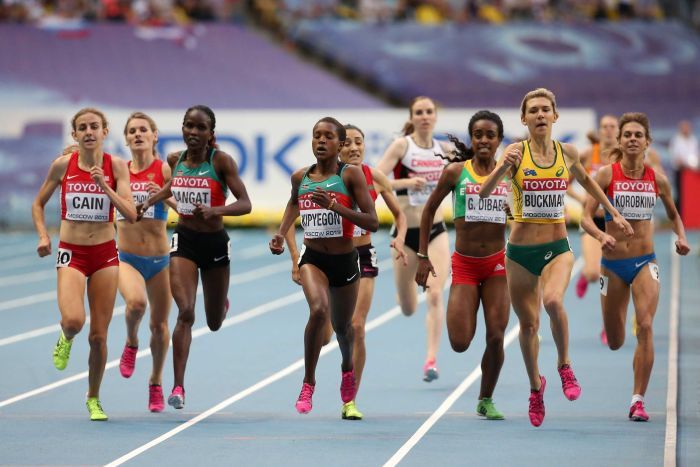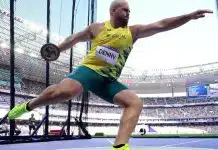(Q) Hello Zoe, thank you for joining us for a chat. It would be great to hear about your current situation: where you are and how things are going?
(A): I’m in Melbourne, putting in some good base training. The competition season for me will not start until February. I’ve been back into full training for 7 weeks now, so have strung some good training together. I am heading to Falls Creek in January for 6 weeks.
(Q) Great. So you had a bit of time off after the World Championships in Moscow? What did you do in your time off?
(A): I kept racing after Moscow until the end of September.¨I arrived home at the end of September, so October was a quiet one. It took a while to recover from all the travelling, and I enjoyed just living like a normal person for a while. Also spent time catching up with everyone in Australia.
(Q) Let’s quickly talk about the 2013 season. Run us through it, starting with the Australian season and perhaps highlight the important one’s up until Moscow.
(A): My 2013 season actually kicked off in New Zealand. I ran an 800m on grass there, then returned later for a road mile. The idea was to get some variety. To mix things up even more, I did a little 3k time trial at Box Hill interclub. Then raced lightly before rounding off my World Champs selection in Sydney.
(Q) The variety seemed to work and you got the win at the trials. From there, what was the plan leading into Moscow?
(A): From there it was on to USA. I ran a good 800m leg at Penn Relays, and then raced a couple of times over 1500m. This was coming from an altitude base near San Diego. After that, I returned briefly to Australia for the Leonora Golden Gift.
After Leonora it was over to Europe. I got in some good tactical race practice there. There were no sizzling times, but I could see my strength after, for example, running a 4:06 from the front. I also ran a pb over 800m. The last race before Moscow was the London DL. I led into the straight, but tensed up a little towards the end. Or maybe I kicked a little early. Regardless, it gave me a bit more confidence heading into Moscow.
(Q)It was clear that you went into Moscow with an abundance of confidence, winning your heat and semi-final in spectacular fashion, looking quite easy. You were quite low odds to medal at the TAB. Run us through this whole experience. It must have been very exciting.
(A): I didn’t worry about times, because I had increasingly been in a position to win leading up to Moscow. It was just a matter of execution. I also had confidence in my 800m speed, which is tactically important. Throughout the races, I just tried to keep it as simple as possible. Keep near the front. In order to do that, I found myself living in the moment and doing what I had to do. It was a tough experience, very nerve wracking throughout those rounds. but at least now I know if I’ve done it once, I can do it again.
(Q) Before the final, what were you thinking? And what did you want to achieve?
(A): I was just thinking about going through the motions that I had used before. I was also thinking about how badly I wanted to medal, which meant that I had to employ more tactics to keep the nerves under control. I was happy to be there, but definitely hungry for more.
(Q) This year comes at a perfect time then, with a Commonwealth Games medal certainly in the pipeline.
(A): Yes. I have the bar set high. It is a realistic goal building off last year, especially if training continues to progress, even in small increments.
(Q) Let’s have a quick talk about your training. What does it involve? You can talk as in detail as you like. But it would be awesome to hear your volume, your standard workouts and your 1%ers (e.g. gym and cross training, if any).
(A): Right now is a heavy training load. We are gradually increasing the volume. I have been running around 115km for the last few weeks. But we play it by ear.
Tuesdays are track sessions (on grass), around 6-7km worth of intervals. It often involves pace change.
Thursdays are a 9.5km tempo on a race course, with some fast short strides afterwards.
Saturdays are hills, which vary, combined with some threshold work again.
Sundays are long- 90mins which incorporates some hills (at Ferny Creek).
Mondays, Wednesday and Fridays are easy training runs, with Monday broken into half, with some strides.
Then I have short easy runs in the evening on Tuesday and Thursday. Plus some strength/drills twice a week.
The strength/drills are a new thing. They focus on elements on the technique, so you can be more efficient. It may mean you blow up, say, 30m later…and at this level, those little things make a difference.
(Q) Very interesting regarding the extra strength/drills. Who do you train with down in Melbourne?
(A): I’m with Susan Kuijken, and some of the local boys like Tom O’Shaughnessy help out with pacing on the track. On Tuesday we normally get a good turn out, with the Ballarat Project occasionally there. Gen Lacaze has joined us too, but as you know is on the way back. Courtney Powell has also been jumping in on Tuesday.
(Q) Great team. I was about to ask more about the MTC, but before that, we’d love to hear a lot about your experience at Oregon. It’s the college every distance runner wants to get into. Do you think it was a good move? Did you enjoy your time there? Would you recommend college in the USA to young up and comers?
Of course. It was a great step at that stage of my development as a runner, and also provided a life experience. I enjoyed it, but there are a lot of things I would do differently now…I guess that’s all part of the learning curve. I always encourage young athletes to consider collegiate running. There is a good security network there. Everything revolves around running. You travel a lot, but the school does everything possible to take care of you. That includes balancing athletics with academics. Classes were always in the morning, practice after lunch. The team atmosphere means that you need to increase your game- turn up with a positive attitude, basically be professional. You have others depending on you to run well. That means putting your individual interests aside. And there are perks. You earn prestige as a “student-athlete”. And it’s fun because you always have people around.
(Q) How did you find the American boys?
(A): They are very confident. And can be quite funny.
(Q) It sounds as if Oregon was the ideal stepping stone in your transition from a junior latent to world class athlete. What happened immediately following your graduation from Oregon?
(A): I graduated in June 2011 and met Nic Bideau and the group over in London. We had a few races in Europe there which eventually led up to my Olympic A qualifier in September.
(Q): Tell us about the set-up in London?
We have a 3-story house in Teddington, which is pretty chock-full of MTC athletes coming and going for races. We stick to the same training schedule, with runs at set times in the morning and evening. The training facilities are great- Bushy and Richmond Park right there, a track and a gym. Also the train station and shops.
(Q) In your opinion, is this the ideal place in the world for a racing base? Or would you consider other places too, provided the MTC moved with you.
(A): Yes, I don’t take it for granted. I’m not very experienced with racing bases, it’s all I’ve come to know over the last 3 years. But as far as I’m concerned it has everything we need as a European racing base, and the results show.
(Q) That’s ideal. To begin to wrap things up, I’d like to throw a few random questions at you that I’m sure many people would like to hear the answers to, firstly: When you retire from the sport, what do you want to do?
(A): I’d like to be a psychologist, maybe with sports concentration. I’m currently working on a degree just on the side of running, so I hope that eventually I will get there.
(Q) Very nice. Where is your ideal holiday destination? And why?
(A): I never get proper holidays! I really like Italy, but I’d like to see more of France. The people intrigue me, the city is full of art, and you can always escape to the rich countryside.
(Q) Okay. What are your current living arrangements? Where do you live and who do you live with?
(A): In Melbourne. I discovered some distant relatives. I have moved around a lot but am finally feeling more settled. Just this year I got in touch with some distant relatives here. Interesting story, my 2nd cousin flagged me down on the trail. They have really made me feel at home, and I haven’t had this set up for many years. So it’s definitely given my training a boost.
(Q) Last but not least, what is your diet like? What would your diet plan look like on a normal day and then a racing day?
(A): It’s funny that you mention that, I was just thinking about it today. Lately I have made a few tweaks in my training. I eat a bit more carbohydrate the night before a hard session, and make sure I get plenty of protein afterwards. In other words, I’m approaching hard workouts more like a race day. It seems to be helping my recovery. The goal is always to turn up feeling your best.
HERE NOW
CollegiateDraft.com is a new student-athlete recruiting company aimed at providing a simple yet specialised and inexpensive way for athletes to apply for a University scholarship in the United States.
CollegiateDraft.com enables athletes to register their training, academic and lifestyle preferences, which are then matched by algorithms to best suited and relevant Universities throughout the United States. The athlete’s information is then sent to the Head Coaches of the matched universities and the bidding for the athlete commences.















